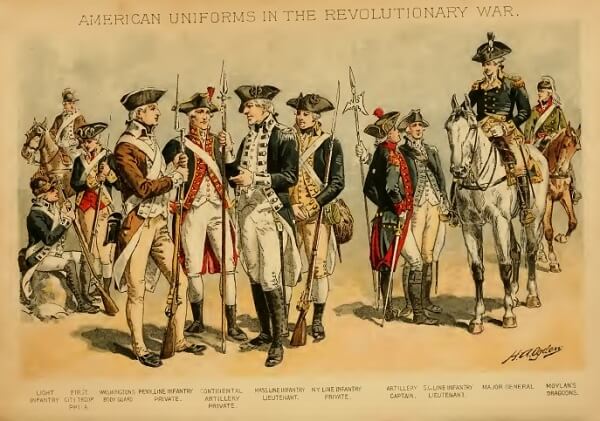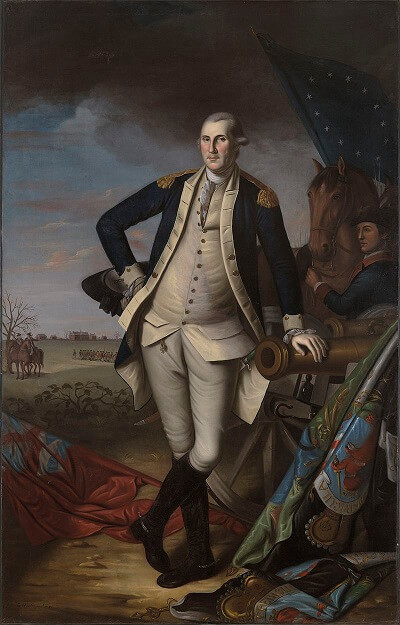Activity 1: Narrate the Chapter
- Narrate the chapter events aloud in your own words.
Activity 2: Study the Chapter Picture
- Study the chapter picture, 'Uniforms of the American Revolution,' and describe how it relates to the chapter.
Activity 3: Map the Chapter
- Find Boston (Lexington), Massachusetts, the general site of the outbreak of the Revolutionary War.
- Find Philadelphia, Pennsylvania, the meeting place of the Continental Congress.
Activity 4: Play the State Capital Cities Game
- Play an online game to learn the state capitals.
- https://online.seterra.com/en/vgp/3063
Activity 5: Complete Copywork, Narration, Dictation, and Mapwork

- Click the crayon above. Complete pages 58-59 of 'American History Copywork, Narration, Dictation, and Mapwork for Fourth Grade.'
Activity 6: Read the Declaration of Independence
The Declaration of Independence announced America's independence from England. Read the opening lines of the Declaration of Independence:
- IN CONGRESS, JULY 4, 1776
- The unanimous Declaration of the thirteen United States of America
- 'When in the Course of human events it becomes necessary for one people to dissolve the political bands which have connected them with another and to assume among the powers of the earth, the separate and equal station to which the Laws of Nature and of Nature's God entitle them, a decent respect to the opinions of mankind requires that they should declare the causes which impel them to the separation.'
- 'We hold these truths to be self-evident, that all men are created equal, that they are endowed by their Creator with certain unalienable Rights, that among these are Life, Liberty and the pursuit of Happiness. — That to secure these rights, Governments are instituted among Men, deriving their just powers from the consent of the governed, — That whenever any Form of Government becomes destructive of these ends, it is the Right of the People to alter or to abolish it, and to institute new Government...'
 A History of the United States and its People
A History of the United States
A History of the United States and its People
A History of the United States



 A History of the United States and its People
A History of the United States
A History of the United States and its People
A History of the United States




